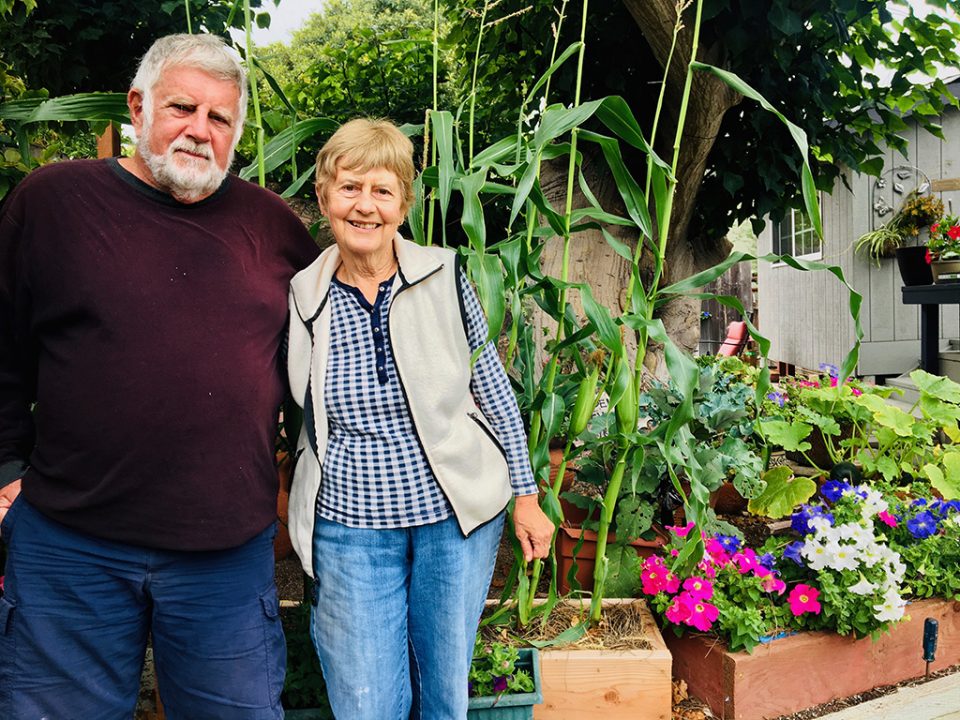First off, there is quite an entertaining backstory to this week’s column. When I moved to the area, I scored one of the last old school cottages on the bluff on Neptune in Encinitas. It was like going back in time as the house did not take up the entire lot and offered us both a street side yard and a 50-by-50-foot piece of grass and gravel on the bluff with a fire pit.
It was an epic location with affordable rent and provided several years of “living on the edge” that I will cherish forever. It was during that time that I would receive mail that was addressed to David Boylan but was obviously not intended for me as it was scientific in nature. Long voicemails addressing similar topics were also common along with a dry cleaning mix up at Surf Cleaners. It was then that I discovered that there was another David Boylan living on Neptune and, well, of course we had to meet!
When we finally did we discovered we had many random similarities, including both owning a 1962 Lambretta scooter, a shared passion for surfing and body surfing at Stone Steps, and a mutual appreciation for renewable energy and gardening, to name a few. I became good friends with David Boylan, his wife, Gloria, and their daughter, Erin, who is a respected local Pilates trainer. To this day we still get a good laugh when we run into each other with friends and are introduced as “the other David Boylan.”
The other David Boylan has a Ph.D. in chemistry from the University of Hawaii and did postdoctoral studies at UC Berkeley and at the University of Bristol in England. He has written over a dozen publications and holds a patent on a low temperature distillation system. That is just a sampling of his extensive accomplishments and he is now easing into semi-retirement, still living on Neptune, and writing a book on Future Science.
All that said, when the coronavirus led to self-quarantining, his thoughts turned to potential food shortages and how folks with limited space for traditional gardens could utilize the concepts of permaculture gardening to produce gardens that can be planted anywhere and that use little soil, less water and organic waste sources as mulch. He told me about this over a recent conversation at Stone Steps and I thought it would be a perfect story for Coast News readers, many of whom don’t have space for extensive traditional gardens and who could benefit from what he calls small, high-yield mulch gardens.
David learned about permaculture from one of the most respected authorities on the subject, Bill Mollison, in Maui years ago. It has been defined as a holistic approach to gardening and can also be applied to other facets of life. Even though the word permaculture was coined recently, the principle goes way back and indigenous cultures around the world have practiced it.
To keep it simple and concise here, I’m going to go back to the other David Boylan’s mulch garden approach. He has these planted in cinder blocks, old tires, and traditional pots around his yard. His potting mix includes 50% commercial potting soil, and 50% native soil with the potting soil including bark, compost, pumice, earthworm castings, kelp meal, bat guano, oyster shell and dolomite lime.
His organic mulch contribution to the mix has included pine needles, oat straw, wood shavings and leaves when available. His go-to commercial soil is Edna’s Best from EB Stone Organics. David shared a fun story of the time while cleaning his roof of pine needles and came across a pile of needles with a vibrant plant growing in the middle. A great example of the power of composted mulch!
Mulch is important to the success of the garden as it decomposes during the growing period, slowly releasing nutrients. It also is a key component in retaining moisture and is essential to the overall health of your plants. There is much more to it but that’s the nutshell, and I highly encourage you to do some research on composting, mulch and permaculture.
David and Gloria Boylan’s garden is a prime example of permaculture at work and David mentioned that he would be happy to share tips and advice on the topic with anyone who is interested. You can reach him at [email protected].
Gloria is also developing a curriculum on gardening and more geared for young children. I will keep you posted on that as it becomes available. I’ll leave you with the words from a sign in their garden that sums it up nicely and reads “A garden is for believers in a fruitful and new tomorrow” and how true that is.



